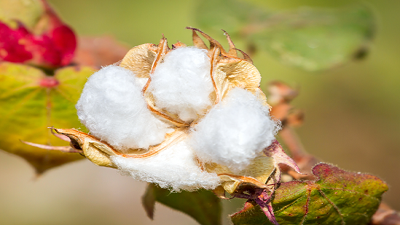"The report published by the University of Cambridge Institute for Sustainability Leadership (CISL) highlights the actions needed to ensure positive impacts on natural capital. It presents 15 different management interventions in the cotton supply chain, focusing particularly on water, biodiversity and soil.An online cotton tool was also unveiled to help businesses identify the types of interventions that are most relevant to their cotton production."

Natural Capital Leaders Platform and leading companies joined forces at Cambridge University with cotton experts to unveil a report that demonstrates the positive natural capital impacts of specific cotton production practices. Seven leading global businesses called on all actors in the cotton industry to accelerate action on natural capital to ensure a sustainable future for the sector. They joined forces with social and environmental initiatives and cotton experts to produce a report ‘Threading natural capital into cotton: Doing business with nature’, that demonstrates the positive natural capital impacts of specific cotton production practices.

The report published by the University of Cambridge Institute for Sustainability Leadership (CISL) highlights the actions needed to ensure positive impacts on natural capital. It presents 15 different management interventions in the cotton supply chain, focusing particularly on water, biodiversity and soil.An online cotton tool was also unveiled to help businesses identify the types of interventions that are most relevant to their cotton production.
Cotton: One of the most important crops
The report says that cotton is one of the world’s most important crops. Last year, it was grown across 2.5 per cent of global agricultural land. Cotton is worn throughout the world, across socio-economic boundaries. However, the natural resources its production depends upon are at risk and must be safeguarded to ensure the long-term security of cotton supply chains.
The report highlights opportunities to safeguard the natural resources the cotton industry depends upon while at the same time reducing business vulnerabilities and risk. The study concludes that natural capital must be recognised and understood by businesses and incorporated into their decision-making processes. The report aims to inform a constructive dialogue and collaborative work between all actors, from farmers to retailers, and encourage progress towards sustainable and resilient cotton supply chains by providing strong evidence of natural capital impacts.
The online cotton tool
The online tool assesses various types of management practices and their impacts natural capital, such as water, biodiversity and soil. According to Gemma Cranston, Senior Programme Manager at the Natural Capital Leaders Platform, the challenge facing businesses around cotton is that there is not enough evidence around best management practices for natural capital. That is why we convened a group of leading businesses, experts and representatives from sustainable cotton initiatives to begin assessing the evidence for cotton-based management interventions on natural capital. By making it accessible to key decision-makers and influencers within cotton supply chains, more informed decisions can be made to support cotton’s sustainable future, explained Cranston.
The online cotton tool unveiled with the report will help businesses determine the management interventions they should prioritise depending on their position in the cotton supply chain. The tool is based on a technical report that challenges current management practices by providing a robust systematic review of scientific and accessible evidence.
‘Threading natural capital into cotton: Doing business with nature,’ is the result of a collaboration between the Natural Capital Leaders Platform and leading companies including Asda, Bayer, Cargill, C&A, Kering, Olam International and Value Retail, working together with experts and cotton initiatives as part of a Cotton Action Research Collaboratory (ARC).












